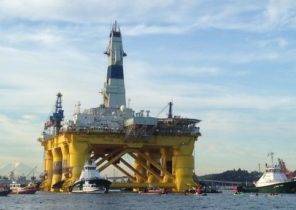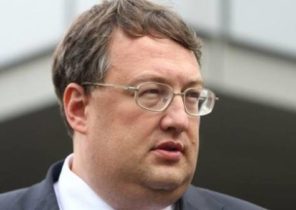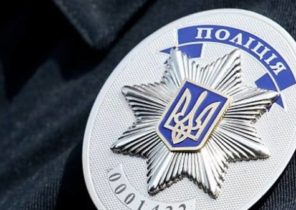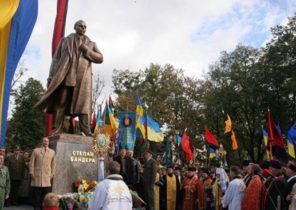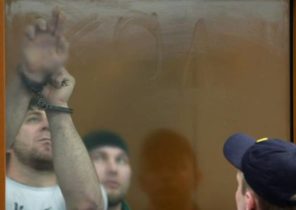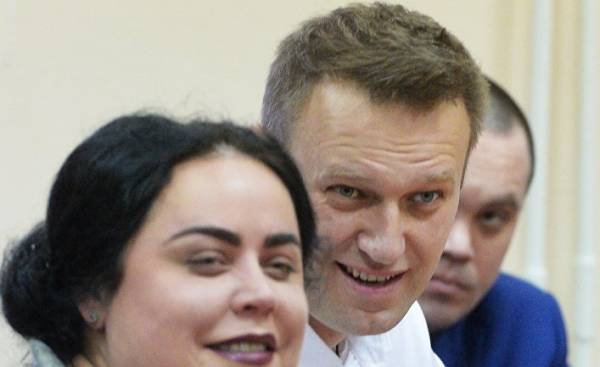
Despite all his experience, I wonder what the Western media write about Navalny as a serious candidate in the upcoming Russian presidential elections. Bulk as the representative of the Russian liberals and neoliberals refers to the remains of the Russian traitor liberal and neo-liberal values. Finally they were betrayed by the liberals in 1993. This betrayal was allegedly due to the fear of communism, but in fact it covered the fear of completion of privatization.
The vast majority of citizens of modern Russia is considered part of the Bulk financed by the West community, whose task is to maintain and increase tension in society, and to nurture hope for the return of the liberals to real power. In this regard, I asked a few questions when I lectured in Russia, having arrived there after Easter. I chose three questions.
First: why no one Russian official media has not commented on the Bulk film about corruption of the Prime Minister Medvedev?
My answer was approximately such. First, in the current situation and in anticipation of the presidential campaign in Russia would be stupid to fall for the provocative bait of Mr. Navalny. Few people in Russia are able to engage in dialogue, but there are many masters of the debate, as in the West. Second, nothing prevents the Prime Minister to say that the finder described in the film, the wealth will receive a reward. Saying it or something like that, the Prime Minister would show that stands above the situation. Thirdly, the chances of the return of the liberals and neoliberals to real power is irretrievably lost, if only President Putin will not fail health, and in this case you will not find a pre-selected shape. In the case of Putin’s re-election, I expect a further tightening of discipline in state, public and business sector to continue the current development of society. If there is a major regional conflicts, which cannot be excluded, the current changes of some key economic policy principles will not be enough. The priority will be the nationalization of the ruble with a corresponding change of Constitution, change of policies of privatization and “de-offshorization”.
Second question. Why the foreigner to visit the largest Ural state University, must apply for permission to visit for two weeks?
On hearing this question, I decided to personally check the situation. The result: where professors knows me, I have no problems. In a major University, where a few years ago, I visited with short visit, I was able to get as familiar with the system. However, we had to get additional permission, which in this case could not give even the speaker. So I decided to explain this process: apparently, this case is one of many relating to internal sabotage. Why?
The answer is simple. The experience of a foreigner faced with this absurd situation about which he can tell upon returning home, the perfect way to support the Western image of Russia and Russophobia. It will be said that, firstly, the academic field must be free. Secondly, at the official level supports the educational aspiration and academic institutions to collaborate with Western colleagues, especially in the sphere of interaction between young generations. Thirdly, the impression that the FSB is everywhere and is everything. The reality is: in a modern University Western people there is nothing to steal. General tightening of access rules to the academic field due to the fact that some forces engaged in sabotage within companies. True that FSB controls most of my life, primarily economic and political. But where different in the West?
Right in the fact that in the far East are citizens of 18 countries can visit the Russian Federation without visas.
So I guess a) the Kremlin doesn’t know about mandatory for foreigners the application for a permit to visit the University, served for two weeks, b) internal sabotage and hypocrisy, as I call this phenomenon will be largely limited to the case of re-election of President Putin. Why do I think so? The answer is linked to the third question: how will the relations of the US, EU and Russia, as well as Russia and the Czech Republic in the near future?
In the United States will continue the campaign against trump, resulting in an increased role of the Pentagon, will begin new talks within the framework of NAFTA before a probable withdrawal from the Treaty and so the failure to fulfill campaign promises. With regard to U.S. relations with Russia, I do not expect any improvement or a stabilization at the current level. On the contrary, will have worsening. As for Russia’s relations with the EU, and they will do the same. Why?
The EU is not engaged with three current crises and their accompanying paradoxes. I’m talking about the economic crisis, the crisis of democracy and crisis of integration. The EU’s dependence on the decisions of States increases. As for Russia, the present government, at the latest after the presidential election, will leave, and the new. The Prime Minister will be either Dmitry Rogozin, or someone like him. The situation in the world, the new Russian government and international diplomacy will be without a Prime Minister like Medvedev. Tough, experienced and educated practitioner Rogozin, which his words do not climb, much better able to lead a generation of young officials (35-45 years) who are not personally involved in the events of perestroika and the dashing 90. These people will take administrative and leadership positions not only in Central government but also regional governments, industry and business. Corresponding changes are already taking place, although this is not a lot of writing. The peak will be reached after the presidential election, and this, which is very likely — almost certainly — will continue to prove just how alive conservative ideas and values which are inherently characteristic of Europe is more democratic than the ideas and values of liberals and neoliberals. In their values too much immoral and hypocritical. They made possible the material well-being of post-war societies, but also brought moral decline and deepening social inequality and loss of human dignity. What this means for relations between Russia and the Czech Republic?
Modern Russophobia and sanctions limit the ability of older generations to share their experience and contacts in education and business for young Czechs and Europeans in General. In the near future these young people will not be able to establish and develop quality relations with its neighbours, potential competitors and trading partners in the same age group, despite the fact that both parties possess, for example, English. In addition, a large part of the Russian market for many decades will be others.
A new generation of European politicians will face greater obstacles in addressing the ever-changing and constantly multiplying problems, not only in Europe but also in the most important regions of the world. The idea that CR can play the role of a diplomatic mediator between Russia, the EU and the US, in my opinion, relates to the field of dreams. The Czech Republic could take a cue from Israel and to act: to refuse about foreign policy ambitions and concentrate on clear domestic policy, including security. Why?
The fact is that due to the current sanctions and Russophobia will continue the rise of nationalism, populism, isolationism in all spheres of public life in Europe. Fewer citizens will understand that for the European Union means the triangle Russia-China-India in the face of continuing middle Eastern and far Eastern crises.


